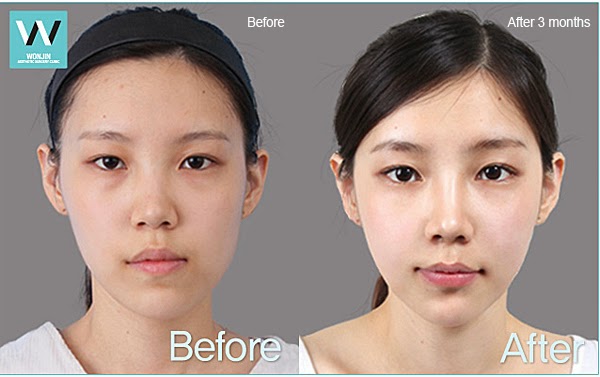Scientifically-proven methods to overcome insomnia
1. Regular sleeping habits
Sleep and wake-up on a regular routine. Establishing a regular sleep-wake cycle by going to bed at the same time and waking up at the same time is the most important thing for maintaining optimal sleep hygiene.
Sleep and wake-up on a regular routine. Establishing a regular sleep-wake cycle by going to bed at the same time and waking up at the same time is the most important thing for maintaining optimal sleep hygiene.
2. Create a comfortable environment for sleep
It helps to decorate the bedroom only for sleep. Purchase an accommodating pillow, soft blankets and bed sheets, cozy pajamas and make the bedroom an inviting place. Keep televisions and computers away from the room, and block all lights from the outside by installing curtains or blinds. It is also recommended to remove all devices that may create small noises.
It helps to decorate the bedroom only for sleep. Purchase an accommodating pillow, soft blankets and bed sheets, cozy pajamas and make the bedroom an inviting place. Keep televisions and computers away from the room, and block all lights from the outside by installing curtains or blinds. It is also recommended to remove all devices that may create small noises.
3. Maintain a cool room temperature
Our body temperature tends to decrease during sleep, so cooling down the room is one of the tips to fall asleep easily. According to the doctor in charge of the Sleeping Center in New York State Hospital, inflicting heat during sleep causes one to wake-up frequently and distracts from falling back into sleep again, so it is recommended to limit the room temperature up to 20 degrees.
Our body temperature tends to decrease during sleep, so cooling down the room is one of the tips to fall asleep easily. According to the doctor in charge of the Sleeping Center in New York State Hospital, inflicting heat during sleep causes one to wake-up frequently and distracts from falling back into sleep again, so it is recommended to limit the room temperature up to 20 degrees.
4. Eat light snacks
Excessive control on hunger may have an adverse effect on sleep. Therefore, it is good to consume some light snacks before bed. Carbohydrates are rich in tryptophan, which is one of the essential components of amino acids that creates Serotonin, a sleep inducer hormone. Good examples are whole-grain biscuits, peanut-butter, almonds, bananas etc.
Excessive control on hunger may have an adverse effect on sleep. Therefore, it is good to consume some light snacks before bed. Carbohydrates are rich in tryptophan, which is one of the essential components of amino acids that creates Serotonin, a sleep inducer hormone. Good examples are whole-grain biscuits, peanut-butter, almonds, bananas etc.
5. Resist from caffeinated drinks
A cup of coffee in the morning may refresh the mind and awake you, but caffeine is the critical source of inadequate or poor-quality sleep, so you might want to limit your consumption of caffeine in the afternoon and evening. Not only coffees, but drinks like herb tea, iced tea, and black tea also contain caffeine so it is recommended to refrain from them at least 6 hours before sleep.
A cup of coffee in the morning may refresh the mind and awake you, but caffeine is the critical source of inadequate or poor-quality sleep, so you might want to limit your consumption of caffeine in the afternoon and evening. Not only coffees, but drinks like herb tea, iced tea, and black tea also contain caffeine so it is recommended to refrain from them at least 6 hours before sleep.
6. Stay out of screen lights.
Blue lights emitted from television, computer and tablet devices delude our brain that it’s still day time, so refrain from using them before bedtime, so as not to cue your body that it’s time to wake up. Also, blue lights suppress melatonin secretion, which may downgrade the quality of sleep and thus resulting to wake up unrefreshed. If it’s inevitable to stay away from them, wear devices or use applications that dims the blue light.
Blue lights emitted from television, computer and tablet devices delude our brain that it’s still day time, so refrain from using them before bedtime, so as not to cue your body that it’s time to wake up. Also, blue lights suppress melatonin secretion, which may downgrade the quality of sleep and thus resulting to wake up unrefreshed. If it’s inevitable to stay away from them, wear devices or use applications that dims the blue light.
7. Exercise in advance.
Regular exercises improve the symptoms of insomnia and increase the amount of time you spend in the deep, restorative stages of sleep, but don’t engage in vigorous exercise too close to bedtime because your body will produce adrenaline and thus preventing you from falling asleep quickly. It is best to make sure your body-relaxing workouts such as pilates occur 3 hours prior to sleep.
Regular exercises improve the symptoms of insomnia and increase the amount of time you spend in the deep, restorative stages of sleep, but don’t engage in vigorous exercise too close to bedtime because your body will produce adrenaline and thus preventing you from falling asleep quickly. It is best to make sure your body-relaxing workouts such as pilates occur 3 hours prior to sleep.
8. Stay bored
People tend to get drowsier when their minds are relaxed and comfortable. The more you encounter insecure images or contents, the longer it takes for you to fall asleep. Try to free your mind by engaging in relaxing and boring activities such as reading history books or meditations.
People tend to get drowsier when their minds are relaxed and comfortable. The more you encounter insecure images or contents, the longer it takes for you to fall asleep. Try to free your mind by engaging in relaxing and boring activities such as reading history books or meditations.















Comments
Post a Comment